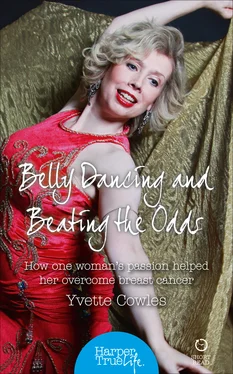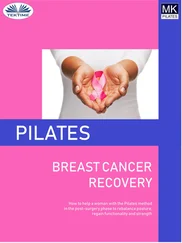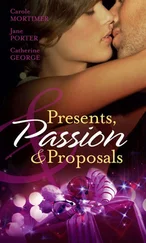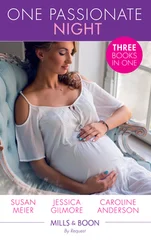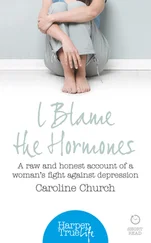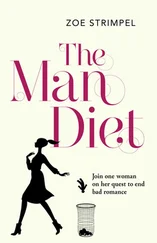My first performance had been such an intoxicating experience that I was soon hungry for another fix. My new-found sisters and I formed a group and started dancing at school fêtes, retirement homes, shopping centres – basically, anywhere that would have us. We didn’t mind the wet and windy weather, the filthy dance floors, the less than salubrious changing conditions, or even the leery men – we were girls together having a great time! I felt the same sense of sisterhood and sharing that I had with my North African friends.
I had always loved dancing. As a child I went to ballet classes but I had a ‘sticky-out bottom’ and didn’t fit in. I tried ballroom dancing but felt desperately self-conscious being ‘in hold’ – especially with boys! I liked to put on my favourite pop songs and dance freestyle, choreographing little routines and imagining myself catching the eye of the cameramen on Top of the Pops . That all changed when I reached adolescence, a miserable period that brought exams, stress, self-loathing and the onset of anorexia. Instead of dancing around my bedroom, I cocooned myself in it all day, writing poems about death. Happily, in France my passion for dance had been re-ignited, and better still, I had found a dance style that really suited me. Not only did I love the music, the costumes and the fact that I was continuing a strong female tradition, but my body enjoyed the movements – at times sinuous, at others percussive – and took to them quite naturally. And once I had acquired a repertoire of movements, I could put them together to express the music as I really felt it.
Through our teacher, Tina, I met a group of other professional dancers and formed an association, MEDA-UK, designed to promote belly dance and give dancers an opportunity to meet up and share information about classes, performances and other activities. For some reason, I was made chairperson. I was only 24 and the least experienced dancer there, but the consensus was that if I worked in publishing I must be quite intelligent, well organised and therefore up to the job. I did tell them that my current responsibilities didn’t extend much beyond filing and tea-making, but it didn’t seem to matter. Or maybe, unlike me, they knew what I was letting myself in for; at times managing such big personalities really put my diplomatic skills to the test. But that certainly proved very handy in later years when dealing with some of my more temperamental authors!
One of MEDA-UK’s biggest achievements was our charity fundraising. Ironically – given how much support I would receive from them myself in later years – one of the most successful events was a fundraiser at Chelsea Harbour for the Royal Marsden Hospital. But the ones I am most proud of are the Belly Dance-Ins that we ran for three years in the Covent Garden Piazza. Without the benefits of emails and social media, we gathered together over 100 dancers from all over the country, had great fun and raised lots of money for charity. Two of our leading members, Vashti and Jill Chartell, pulled strings, called in favours and got big names involved with amazing media coverage. Our friends and families rallied round and even my rather bemused parents weren’t safe – they got roped in to selling Turkish delight, my dad in a rather fetching galabeya and fez . It was a magical time.
I started going to other classes and eventually started classes of my own, where I could share my passion for the dance and encourage others to find theirs too. Many of the women came out of curiosity; some of them were businesswomen, some mothers eager for a break from the kids and a night out with their friends, some of them were looking for a form of exercise that was a little more exciting than keep-fit, others were inspired by dancers they’d seen on their holidays to Egypt or Turkey. A number were very lacking in confidence and obviously very self-conscious. I knew that feeling! They arrived in baggy t-shirts and leggings and looked askance when I asked them if they would like to borrow a hip-scarf. But a few weeks later they were fighting each other for the most sparkly and jangly one to wear.
And so my dance and publishing careers carried on in parallel. They each fulfilled a different need in me. I loved working in publishing because it was such a creative environment and I learned something new from every author and colleague that I worked with. I was given more and more responsibility and bigger campaigns to work on. I loved the challenge. It enriched my mind every single day. But belly dancing was the antidote to all that – I felt it reconnected me with my body and nourished my soul. Whatever their merits, both lives were all-consuming and, what with classes, rehearsals, shows and publishing conferences and launch parties, left little time for anything else. My biggest problem was that there were only 24 hours in the day, and I did need a handful of them for sleeping. Even being in a relationship didn’t deter me. ‘I’m very low down the pecking order, aren’t I?’ sighed my boyfriend, as I went off to yet another dance weekend somewhere around the country. I felt a pang of guilt, but it didn’t stop me. There was so much to do, and I was determined not to miss out on any of it.
Chapter 2
Cancer – Round One!
I was leading a charmed life – and then in 1996 my luck ran out. While I was showering one day, I felt a lump. I went to the local Well Woman clinic and they thought it was a fibroadenoma , commonly known as a ‘breast mouse’. The doctor assured me that there was no real cause for concern, but given that my mother had had breast cancer, she referred me to the Royal Marsden Hospital to be checked out anyway. At that time the Breast Diagnostic Unit was housed in a portacabin.
‘Has it been here long?’ I asked the receptionist.
‘Twenty-five years,’ she replied.
I had the breast biopsy and blood tests, but again nobody seemed very concerned. And then, I received a call from one of the nurses, asking me to come back as there had been a mix-up with the tests and they needed to re-do them. My boyfriend offered to come with me but in the circumstances I couldn’t see the point. It was only a few tests. When I went back and was shown into the consulting room, I took off my top and waited for the consultant to appear. He looked puzzled when he came into the room.
‘Why have you got undressed?’
‘Because you’re re-doing the tests, aren’t you?’ He looked rather awkward.
‘We really don’t need to. We already know the results. And I’m afraid you have DCIS, or ductal carcinoma in situ . It’s the earliest possible form of breast cancer.’
I could barely register what he was saying. I had genuinely believed the nurse, but it had merely been a ruse to get me back without causing me undue alarm. Cancer. The very word made me shudder. And I’d supported my mother through breast cancer four years before and was only too aware of what she’d been through. But she had been 60 and I was only 31. The consultant went on to say that, although DCIS isn’t a life-threatening condition, if left untreated it may develop the ability to spread into the surrounding tissue and become an invasive breast cancer. For that reason I would need a lumpectomy and then, once the cells had been examined, we would discuss further options such as radiotherapy and hormone treatment.
After the appointment I called my mother, my boyfriend and a couple of close friends. I thought that by telling them it would feel more real, but I was still numbed by the news. That evening I was due to drive up with a colleague to a sales conference in Market Bosworth. In spite of my mother’s misgivings, I decided to go. I had to keep busy and not have too much time to think. Ironically though, one of the titles being presented was a book on breast cancer. During the presentation the editor reeled off a handful of statistics. ‘One in nine women will get breast cancer in their lifetime’ was one; ‘80 per cent of women who develop breast cancer are over 50’ was another.
Читать дальше
